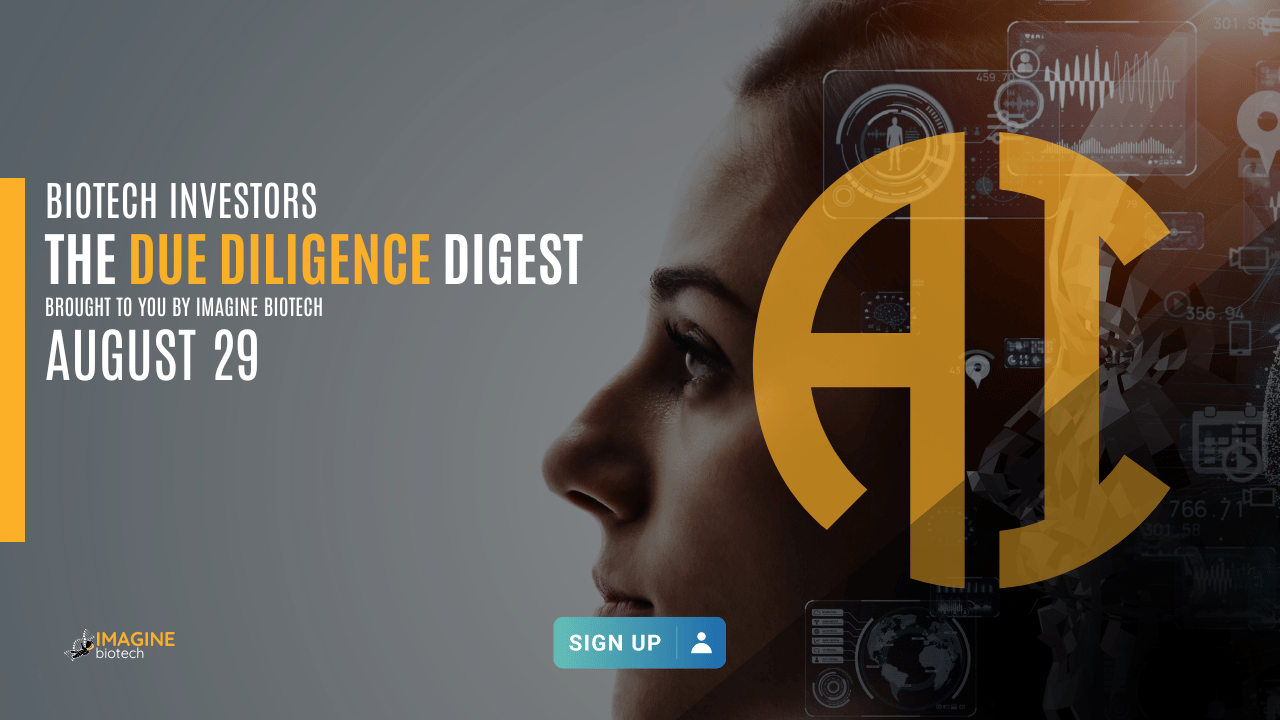- Imagine Biotech Newsletter
- Posts
- Navigating the Evolving Landscape of Biotech and Pharma: Animal Testing and Market Insights
Navigating the Evolving Landscape of Biotech and Pharma: Animal Testing and Market Insights

Animal Testing, Market Insights, and The Latest in Biotech and Pharma
Have recent developments in preclinical toxicology screening changed your view of Animal Testing? |
🖥️ “Could AI put an end to Animal Testing?” 🐀
If you are a reader of the BBC, this is the headline that would have greeted you earlier this summer. Within the article, the role that animal testing plays in the development of new therapeutics is explored along with the opinions of business professionals, researchers, and physicians. Article Link
One of the most time consuming aspects of scientific research and drug development is combing through the thousands of papers detailing animal test results. Primarily performed by hand, an inefficiency is created when researchers have to spend not only their time, but also investor money reading about previous results in animal studies. With the advent of AI systems like popular ChatGPT, many experts in the field believe that there will be a paradigm shift.
“AI is as good as a human, or better, at extracting information from scientific papers”
With AI systems, like that used by Imagine Biotech, previous research data is able to be analyzed and used in conjunction with new preclinical research to put together an accurate toxicology profile of a new drug. With 30% of clinical drug failures being attributed to high levels of toxicity, it is imperative for potential drug candidates to be evaluated thoroughly before millions of dollars are spent in preparation for clinical trials.
While drug trials in animals have been used as a marker for whether or not humans are likely to experience adverse effects from a developing therapeutic, the accuracy of such assessment protocols has been called into question. Aspirin, which demonstrates high toxicity to rat embryos, is one of the highest selling over the counter medications available.
Generally understood to be a protective measure, animal testing could actually be limiting drug developers abilities to bring products to market— a terrible consequence for both members of the general public and investors alike. One estimate of the global Aspirin market size was placed at $2.1 billion dollars in 2020.
Just imagine how much benefit never would have come to fruition had the preclinical toxicology studies for Aspirin, indicating toxicity in rat embryos, resulted in clinical trials not being pursued.

| 📰 Weekly News 📰 |
⌛️More Forecasted Delays in IPOs 📉
September is a time of year when companies tend to go public. A discouraging jobs report from the Labor Department coupled with a dip in the major U.S. stock indexes that has since rebounded has left companies in a dilemma. Going public is a phenomenal way to raise capital in a relatively short period of time but the timing of an IPO is extremely important, especially for biotech companies undertaking groundbreaking research that might not see revenues for years. Investing in biotech is hard for a wide variety of reasons; an already volatile marketspace does not have investors with their hands on the button to buy. Knowing this, companies considering a ticker are likely to hold off until better market conditions present.
💊 Navigator Medicines raises $100MM in Series A funding 💸
Navigator Medicines, a new company founded just earlier this year, has raised $100MM in Series A funding following the purchase of antibodies targeting several autoimmune diseases. The deal, struck with IMBiologics, included a $20MM upfront payment with potential milestone payments reaching almost $925MM.
The VC firms leading the capital raise include RA Capital Management and Forbion. Navigator’s board will take on Wouter Joustra from Forbion and M.D., Ph.D., partner, and managing director Andrew Levin from RA capital management. With both firms boasting successful track records and large portfolios, the capital raise has put Navigator Medicines in good standing, both in regard to their science and finances.
👩🔬 Bayer partners with NextRNA Therapeutics for $547MM 💲
Bayer has signed a deal for $547MM with NextRNA Therapeutics in which a collaboration towards noncoding RNA driven disease therapies will be developed. Founded in 2021, NextRNA is pushing the boundaries of knowledge and therapeutics based upon the role that noncoding RNAs play in cancer development. As announced by Bayer, one of the “program[s] is a lncRNA targeting small molecule program currently in early preclinical development at NextRNA.” Another program announced relies upon testing of determined targets by NextRNA that “Bayer will have the option to select one target for joint development.” More collaboration and news is likely to be announced as Bayer looks to strengthen their oncology portfolio amidst a market downturn that has the stock sitting -18% YTD.
The Imagine Biotech Solution 🔬
Imagine Biotech resources can call upon a wide variety of technologies to de-risk your portfolio using sophisticated pathways that have matured due to improved data resources, confounding factors, and improved model assumptions.
Our array of services range from sophisticated molecular modeling density functional methods (DFT) to the first-of-its-kind integration package of ADMET and PK predictions to academic risk.
Imagine Biotech staff have the training, expertise, and knowledge to review the proposed hypotheses (investment) in their entire journey to commercialization and select those tests/technologies to support further investment success or flag issues that arise only in the environment of review by skilled biotechnology experts.
We believe that informed investments are the cornerstone of progress. Our mission is to empower investors with the insights and tools necessary to navigate the complexities of biotech investments with confidence.

